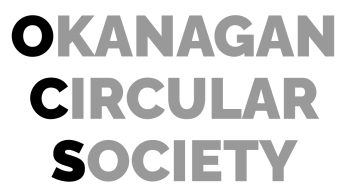I’m not sure about you, but I was deeply saddened last fall when our freshly re-elected Prime Minister of Canada skipped out of national reconciliation day to go surfing. That experience reminded me how far we have to go for meaningful reconciliation as a country.
So let’s delve a little deeper by looking at the Canadian Truth and Reconciliation report, where we find that Indigenous self-governance practices were banned and replaced with elected representatives within a hierarchical structure of power (Euro-colonial governance). Okanagan Syilx Elder and UBCO professor, Jeannette Armstrong PhD, explains that this form of hierarchical governance with majority voting is inherently unsustainable and can destabilize a whole community…
In modern decision-making, the “Roberts rules of democratic process,” in carrying out the will of the majority, creates great disparity and injustice to the minority, which in turn leads to division, polarity, and ongoing dissension.
Real democracy is not about power in numbers, it is about collaboration as an organizational system. Real democracy includes the right of the minority to a remedy, one that is unhampered by the tyranny of a complacent or aggressive majority.
En’owkin: What it Means to a Sustainable Community (by Jeannette Armstrong)
Armstrong says that it’s imperative that community is understood as an interconnected system, and that ecological governance practices, such as En’owkin, are potential pathways to restoring community wholeness fragmented by colonization.
When we move beyond surface reconciliation we are being invited to look closely at the status quo Euro-colonial community systems that continue to fragment, silo, and perpetuate triangular patterns of hierarchical power. Deep reconciliation is systems change, from the often soulless and mechanical organizational patterns of top-down change-management with “empowered” leaders, into living organizational systems that sense and respond as richly biodiverse ecosystems.
Being a man of European ancestry, I’ve been called to restoring ecological practices that reflect both the En’owkin form of community governance and other relational forms of self-governance suppressed during the internal colonization of Europe. There are currently many successful examples of organizations and communities operating as living organizational systems, and fortunately, there are a couple proven self-governance practices, such as Sociocracy and Holacracy, that are scalable with modern for-profits, non-profits, and community groups.
Ecological / self-governance distributes power with clear processes for collaborative decision-making within organizations and communities. As a foundation for sustainability, these practices tap what Armstrong calls the “community-mind” and are based on consent which builds trust and collective solutions.
When we look at our current model of democracy based on Roberts Rules, it’s not surprising that our communities are so divided. And when we see that this form of hierarchical governance is often unconsciously accepted as status quo, I’m curious what it will take to initiate deep reconciliation and transition into ecological / self-governance within our communities.
Written by: Shane Lapp
